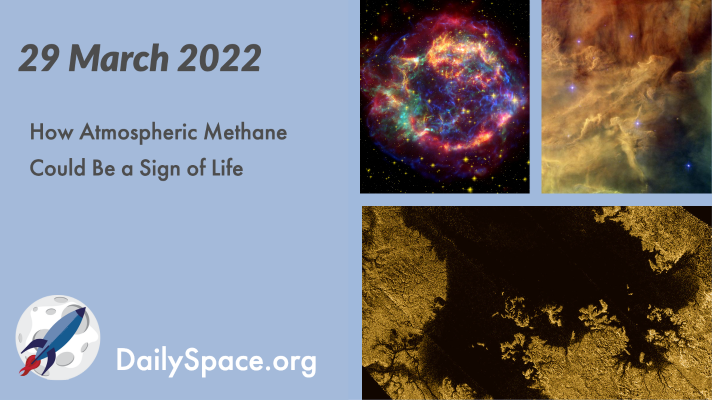
Mar 30, 2022 | Astrobiology, Cosmology, Daily Space, Earth, Galaxies, Mars, Planetary Nebulae, Rockets, Space China, Supernovae Remnants, Titan
Join us as we take a deep dive into the history of atmospheric methane on Mars and Titan, how that methane could be a sign of life, and what methane means for future missions and science. Plus, a planetary nebula, a supernova, ancient helium, and a couple of rockets.
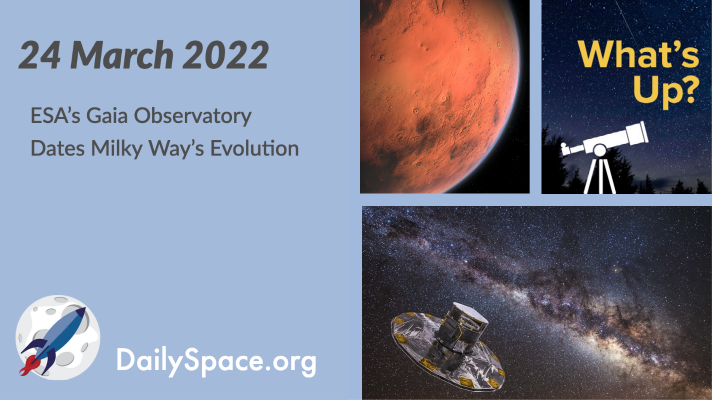
Mar 25, 2022 | Citizen Science, Climate Change, Daily Space, Earth, ESA, Exoplanets, Galaxies, Mars, Milky Way, Perseverance, Sky Watching, Spacecraft
Stellar formation and evolution data collected from ESA’s Gaia telescope has allowed scientists to create a timeline of the evolution of our own galaxy, the Milky Way. Plus, an ancient ice age, sound on Mars, a new exoplanet, and What’s Up.
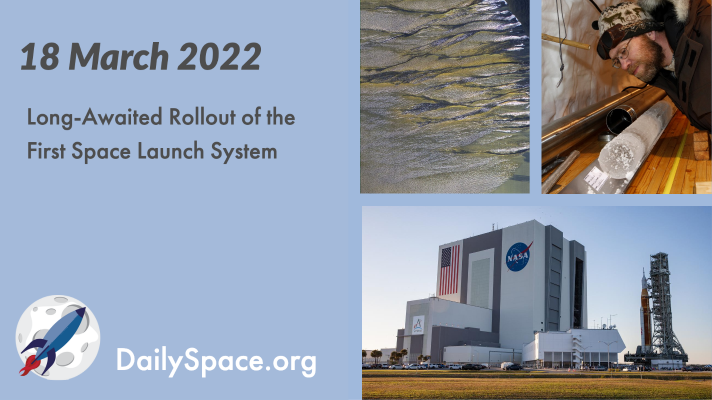
Mar 21, 2022 | Artemis, Asteroids, Climate Change, Crewed Space, Daily Space, Earth, ESA, JWST, Mars, Rockets, ROSCOSMOS, Soyuz, Spacecraft, SpaceX
The first SLS was rolled out of the Vehicle Assembly Building (VAB) High Bay 3 on the Crawler Transporter on March 17, 2022, and is the first lunar rocket to emerge from the VAB since Apollo 17’s Saturn V in 1972. Plus, an asteroid impact, climate change, ancient volcanoes, spring on Mars, and a new Deep Sky Network dish.
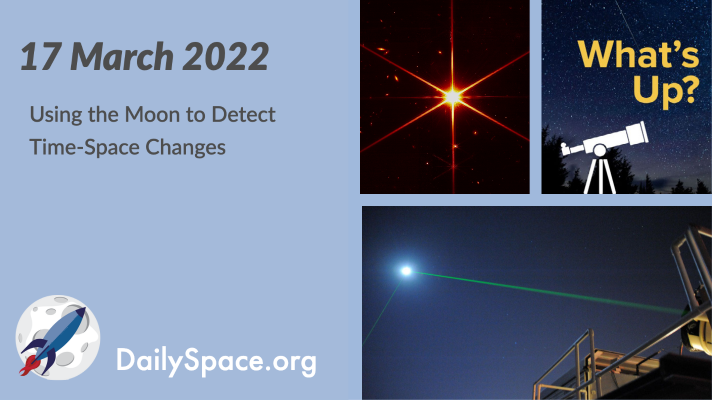
Mar 18, 2022 | Cassini, Daily Space, Earth, ESA, JWST, Mars, Moon, Physics, ROSCOSMOS, Rovers, Saturn, Sky Watching, The Sun
Scientists propose using changes in the distance from the Earth to the Moon and measured by lasers as a way to detect the phenomenon of gravitational waves. Plus, JWST is working, ExoMars is at risk, and in this week’s What’s Up, we learn about looking for zodiacal light.
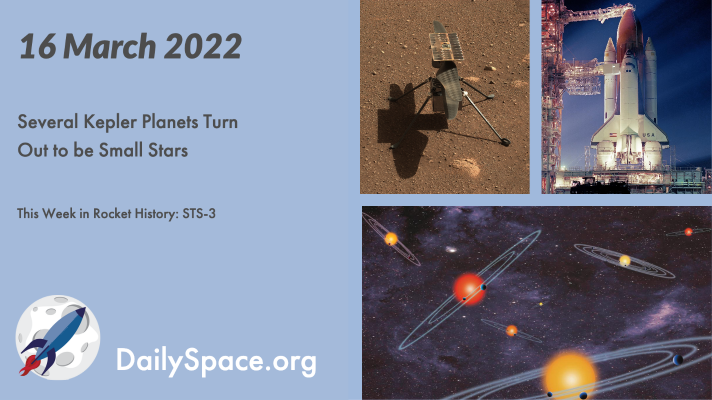
Mar 17, 2022 | Astrobiology, Climate Change, Crewed Space, Daily Space, Earth, Exoplanets, Kepler, Mars, Random Space Fact, Rockets, Soyuz, Space History, Spacecraft, Stars
Using updated stellar measurements based on new data from the Gaia mission, three (and possibly four) Kepler exoplanets are actually small stars, but it’s unlikely new calculations will reveal many more such issues. Plus, Ingenuity, astronauts, permafrost, and This Week in Rocket History, we look back at STS-3 and the first use of the Canadarm.
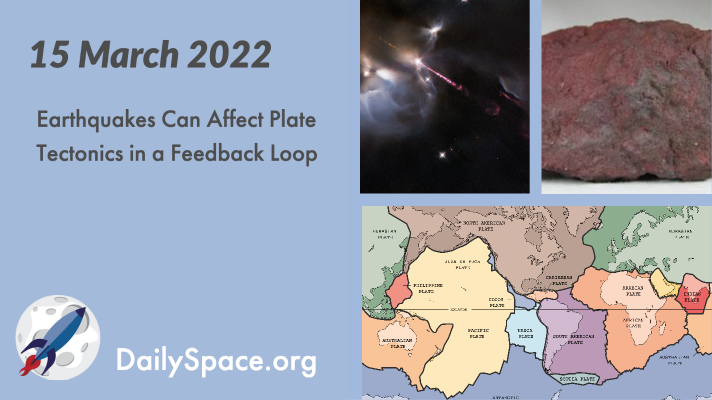
Mar 16, 2022 | Climate Change, Daily Space, Earth, Mars, Neutron Stars / Pulsars, Physics, Stars
Researchers studying GPS data collected from the 1999 İzmit earthquake in Turkey found that the quake changed the movement of the plate, and this effect may be possible for other tectonic plates. Plus, more pretty images, starspots merging, melting Arctic sea ice, and minerals on Mars.








 We record most shows live, on Twitch. Follow us today to get alerts when we go live.
We record most shows live, on Twitch. Follow us today to get alerts when we go live.